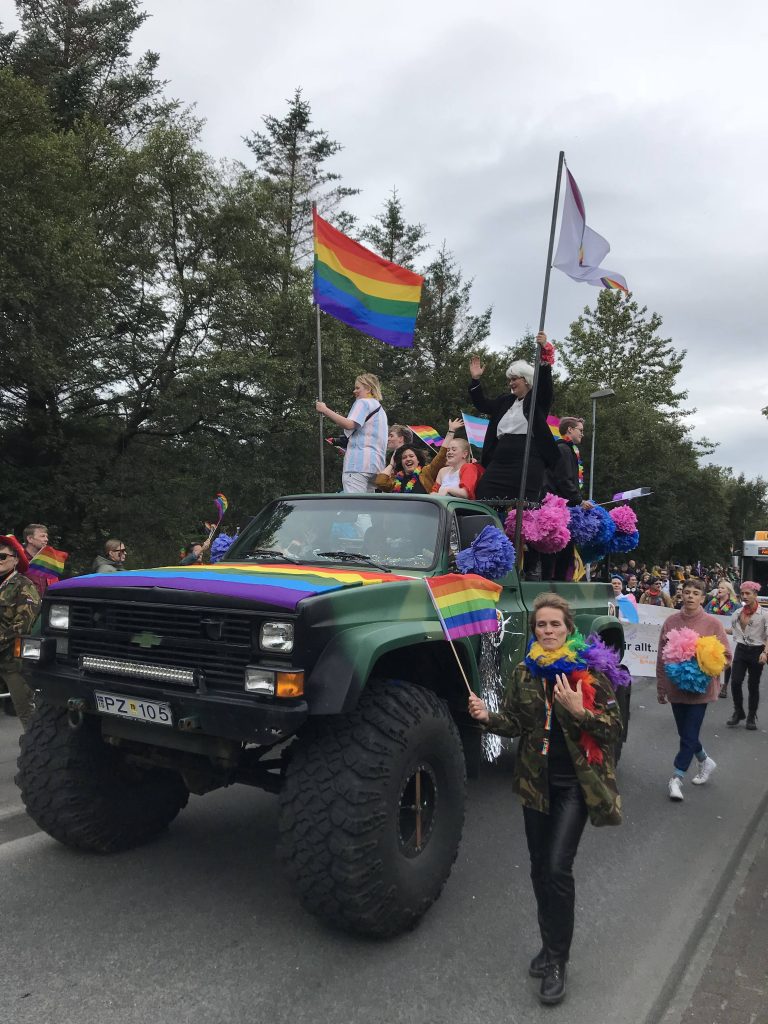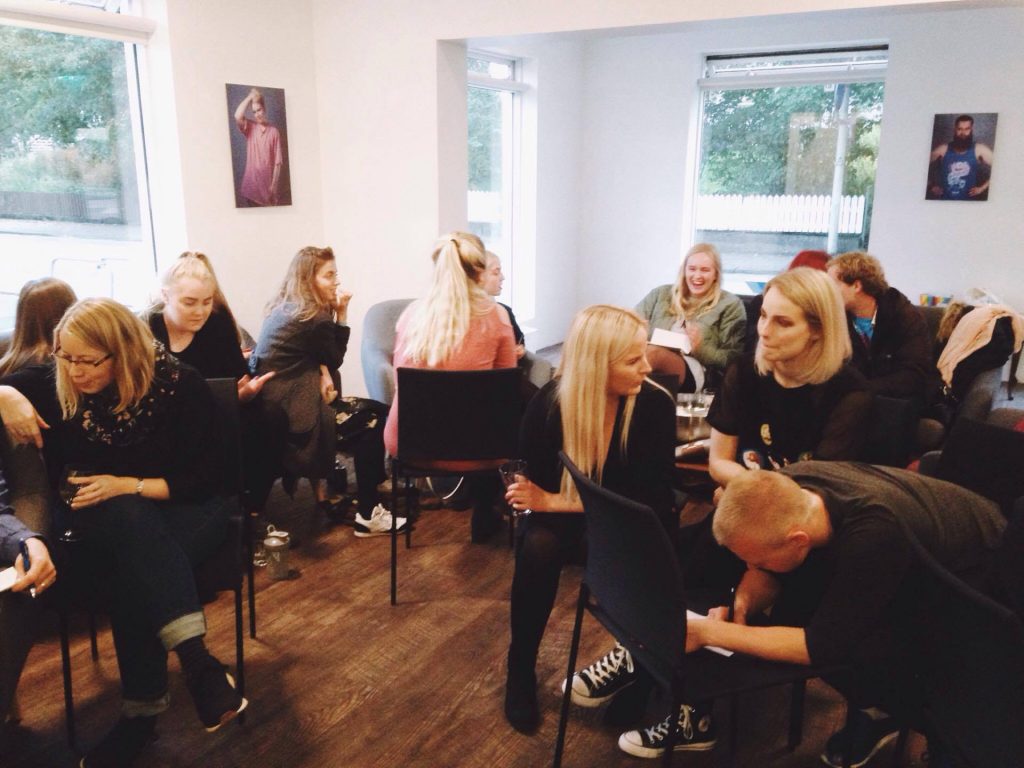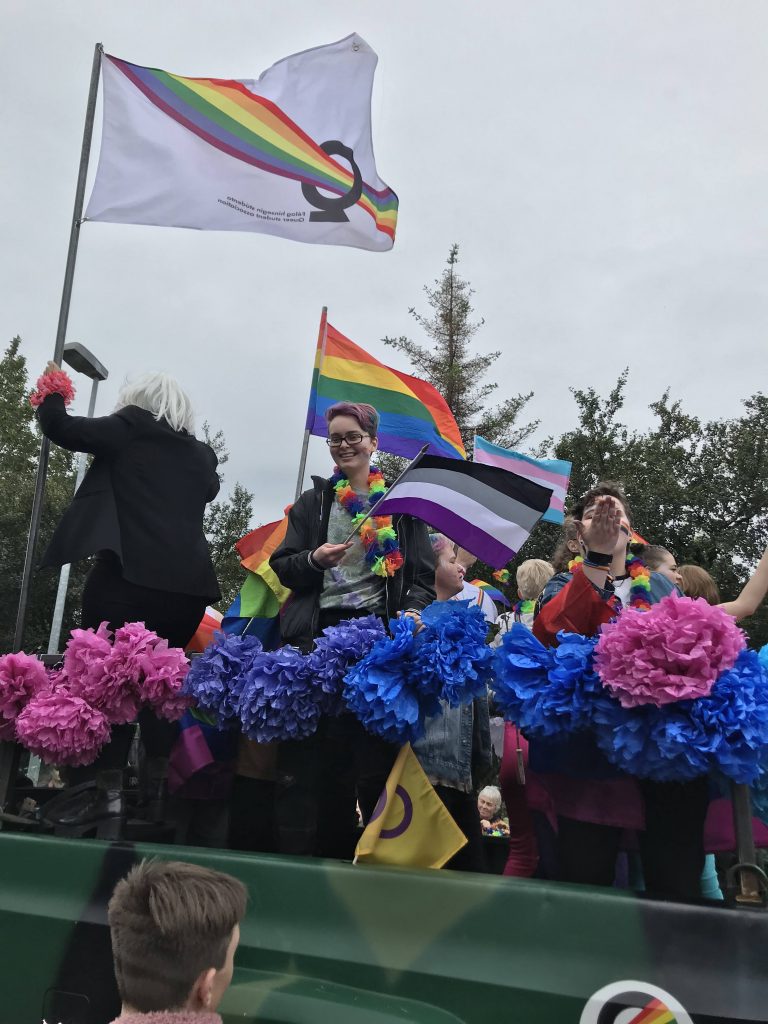The Queer Student Association of Iceland, Q, is turning twenty this year and is on the way up again. GayIceland talked to the chair of Q, Bergþóra Sveinsdóttir about the challenges the association faces, its goals and the upcoming birthday celebration.

Q, the Queer Student Association, is celebrating its twentieth birthday this year. Founded in 1999 at the University of Iceland, when the fight for equality was in full swing, not only did it provide gay and lesbian students support and a meeting ground, but made their voice heard in public, thus building a sense of community among them. Twenty years later, although equality is no longer a distant dream, many fights have yet to be won while new challenges surface.
When Bergþóra Sveinsdóttir became involved as chair two years ago, Q was laying extra low. With less than twenty active members, it had become almost confidential and, as such, risked losing most of its ability to voice out its members’ claims and concerns or, at the very least, its already impaired ability to weigh in any kind of debate. Bearing this in mind, the new board set a priority. “We decided to put the emphasis on our social events, shifting from quantity to quality, to bring students to show up,” she says.
“… we held a special LGBT sex education night recently, which is I think really important, and we may be doing that again. But also sometimes we just get together, watch a movie, play board games or sing karaoke.”
And they did: now more than fifty students gather on Friday nights two times each month, younger than before and eager to join in other activities. The recipe for success? “We actually want our events to be fun and instructive at the same time,” she replies. “For example, we held a special LGBT sex education night recently, which is I think really important, and we may be doing that again. But also sometimes we just get together, watch a movie, play board games or sing karaoke.”
As a result the association seems to be on the way up again, with Q even going a step further to reach other students associations, holding talks along with the National Queer Organization Samtökin ’78 aimed at all the other students associations. “We share insights into LGBT culture, identities, etc. but can also go grab a beer with them at times and even compete in pub quizzes.”
Too much exposure could be harmful
However visibility can be a double-edged sword because as much as Q wants to grow and open up, it needs to remain a safe-space according to Bergþóra. “We want to be visible, just not too visible to protect those attending the events who are not out yet, or taking a first step,” she explains. Therefore the association is extra careful when posting on social media. “Especially considering that a lot of international students attend the events and we don’t know what their environment is like back home.”

While trying to increase its visibility Bergþóra says that Q has also been met with yet another challenge: As acceptance is growing towards queer people in Iceland the sense of belonging – or the need to belong to a LGBT community seems to be fading. “Of course some LGBT people feel that they don’t have things in common with other LGBT people and that’s fine,” she points out, “but I think it’s always important to have some kind of meeting ground where you can find other people going through the same experience, bad or not, if you need it.”
But even though Iceland has been moving toward equality in the past years, she says that many LGBT people are still facing all kinds of struggles in the country. “I think acceptance has definitely grown a lot, but I also think prejudice sometimes lay below the surface here in Iceland so you don’t quite see it. That’s why straight people sometimes misunderstand that there’s no problem being LGBT in Iceland.”
She points out that prejudice can take on many forms and however harmless it may seem at times from an outside perspective, like “inappropriate questions that people wouldn’t ask straight people”, it most certainly builds up and ends up causing lasting damage. Some groups within the LGBT community are also more vulnerable than others. “I think now we need to fight harder for trans people, for their rights and visibility in the Icelandic society and within our own community as well. Especially since blatant abuse and discrimination toward trans people is not unheard of here, for example its not so long ago that a trans woman was thrown out of a club in Reykjavik because of her identity. Therefor they are all the more in need for support and protection.”
Invisible to the university
As a students association, Q’s main battleground is, of course, the University of Iceland. Its primary objective is to inform students on campus to prevent future prejudice and discrimination but also to introduce LGBT topics in academic program. “I feel we’re sometimes like an afterthought”, yet highlights would be relevant if only to prepare future health professionals, teachers, etc. to understand and meet the needs of those who will rely on them, whether they are straight or queer. And the fight goes beyond academic programs as it also aim at raising awareness on LGBT people specific needs in the university environment. Lockers, for example: the university is planning to extend its sport center and Q ”wants them to consider having LGBT-only lockers or at least allow trans and non-binary students to use lockers that match their gender identity.”
But she says that Q’s requests are, more often than not, met with inertia when not rejected right away or delayed for inducing costly investments. “The University of Iceland is a big organization with lots of people working there, lots of things going on and it can take a few years to change courses and people opinions,” she explains, but adds that on the bright side, things are starting to change as Q recently met with some teachers and students at the request of the School of Health Sciences to address LGBT people’s health issues and access to health services. An unquestionable step forward.
“… the fight goes beyond academic programs as it also aim at raising awareness on LGBT people specific needs in the university environment.”
Bergþóra adds that if you want to help Q stay on the right track and support the association ongoing fights, showing up at its birthday event on Friday, January 25, at Reykjavik Hard Rock Café, would definitely be a good way to start. There guests will be met with speeches on Q’s history and future challenges, queer musical guests and stand-up comedy, along with former and current members of the association.
Also, a birthday magazine will be published: make sure to get one!



